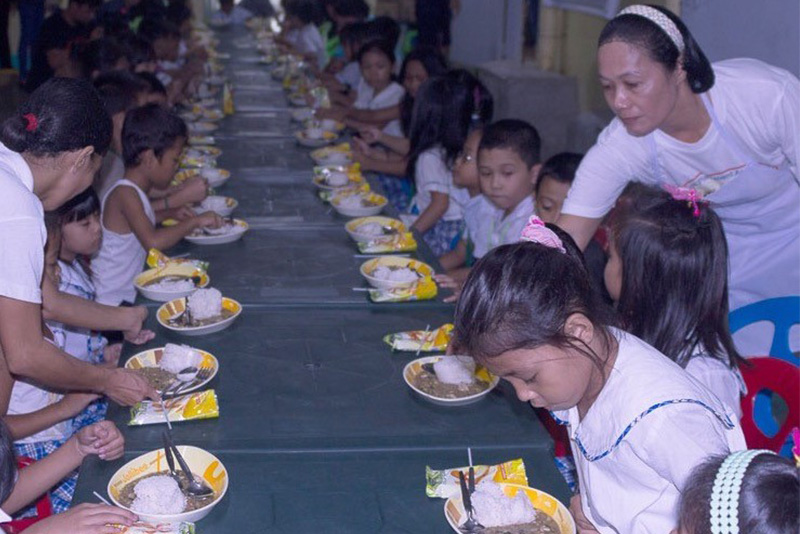Beyond 'food poor', DSWD food stamps also for single parents, pregnant women

MANILA, Philippines — The pilot run of the government's food stamp program, which President Ferdinand "Bongbong" Marcos Jr. formally approved Tuesday, will go beyond the initial 1 million identified as "food poor", Malacañang said Tuesday.
“Aside from the target beneficiaries who are part of the bottom million households, the president also wants to make sure that the program will include single parents, pregnant and lactating women to address the first 1,000 days advocacy,” said Malacañang press officer Daphne Oseña-Paez in Filipino during a press briefing.
The “first 1,000 days advocacy” refers to the campaign to address the nutritional needs of a child beginning from their mother’s pregnancy until they reach the age of two. Nutritional experts consider this period crucial as inadequate nutrition during this time can have lasting effects on health and function.
Social Welfare Secretary Rex Gatchalian highlighted the need for the government’s food stamp program to address stunting among Filipino children.
Stunting refers to when a child is too short for one’s age and has inadequate human development, which in many cases becomes largely irreversible, according to a policy brief by Thousand Days, an advocacy organization for children.
“We know that the problem of stunting is very important and very crucial to to solve if we are to invest in human capital,” Gatchalian said in Filipino.
RELATED: Why feeding programs in school could be 'too late' to address child malnutrition
Gatchalian said the pilot six-month implementation of the food stamp program is "all green lights go." The program is scheduled to start in the second half of the year.
Food stamp program to need P40 billion yearly to be sustainable
The food stamp program has received $3 million worth of grants from multilateral lender Asian Development Bank (ADB), Japan International Cooperation Agency, and the French Development Agency, Gatchalian said. This is roughly P168 million, based on the current dollar-peso exchange rate.
“There's a provision to expand it. ADB is working on other trust funds so that we could expand the pilot," Gatchalian added.
DSWD has estimated that the program will need P40 billion in funding yearly to sustain the project.
Health Secretary Ted Herbosa said in the same press briefing that the health department will coordinate with local government units to determine children who are mildly malnourished, moderately malnourished and severely malnourished.
“And there are medical parameters of who to say they are. We use the weight, the height, the mid, upper arms circumference,” Herbosa explained.
The department will track any improvements in severely malnourished children's nutritional health following the implementation of the food stamp program, Herbosa added.
The "Walang Gutom 2027" program is set to provide the bottom one million households that meet the food-poor criteria set by the Philippine Statistics Authority with electronic benefit transfers loaded with food credits amounting to P3,000.
The beneficiaries can then purchase a select list of food commodities from DSWD-accredited local retailers using these credits.
Philippines part of Top 10 countries with most stunted children
Nearly 29% of Filipino children under five were found to be stunted in 2019, according to the World Bank’s 2021 report on undernutrition in the Philippines.
This made the Philippines fifth among countries in the East Asia and Pacific region with the highest prevalence of stunting and is among the 10 countries in the world with the biggest population of stunted children,
The highest percentage of stunted children concentrated in the regions of the Bangsamoro Autonomous Region of Muslim Mindanao (45%), MIMAROPA (41%), Bicol (40%), Western Visayas (40%) and SOCCKSARGEN (40%), according to the 2015 National Nutrition Survey of the Department of Science and Technology.
- Latest
- Trending
































